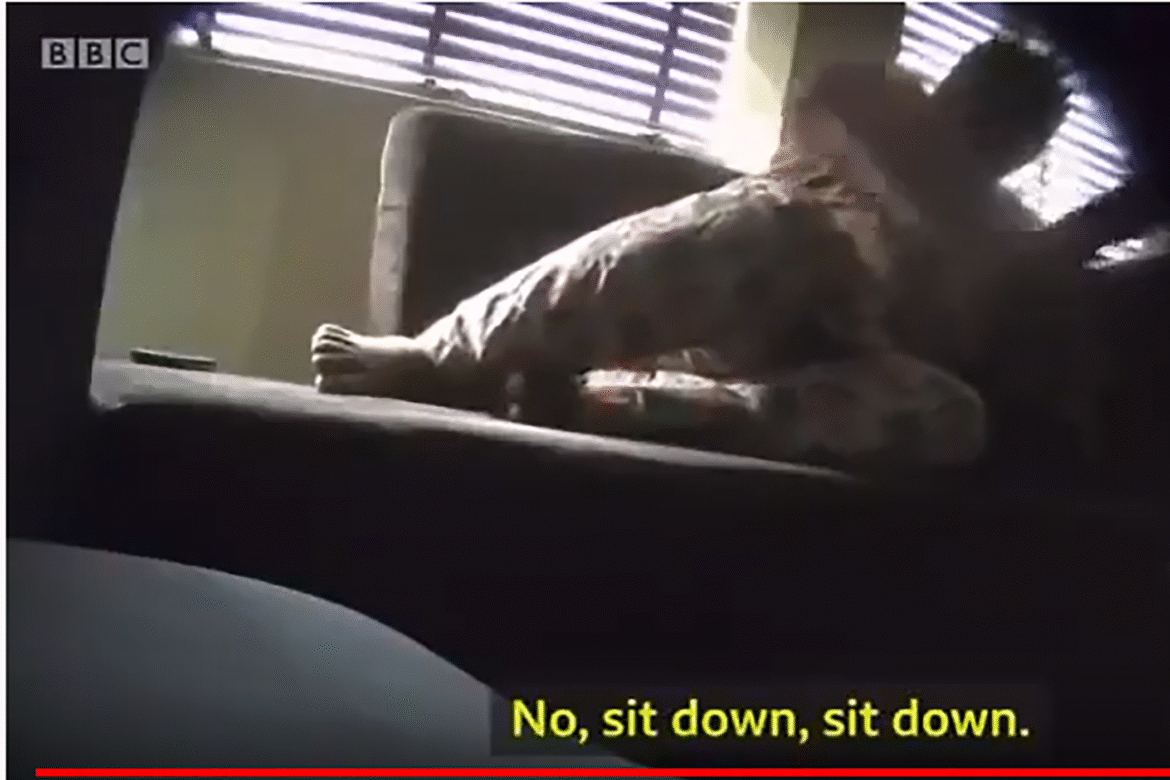Everything has its time, and we are missing an opportunity to control the epidemic of sexual harassment by lecturers of higher institutions in Nigeria.
This is the right time for all well-meaning Nigerians to raise their voice and demand for a law against the victimisation of female students in the institutions of learning across the land.
Not that we have been clueless about what many male university lecturers do in the darkness of their offices and staff clubs.
We have never been unaware that they seek sexual healing from their female students by trading their stature and position.
We have always known that some university teachers have a propensity to harass students with demands for sex in exchange for grades.
What is new is that some of them have been caught on camera by journalists pretending to be students.
It has taken undercover BBC reporters to blow the issue wide open.
BBC Africa Eye secretly filmed several academics in Nigeria and Ghana as part of a year-long investigation published it in a documentary titled Sex for Grades.
Since the release of the report, no fewer than 120 current and former female students have called the BBC to say they have also been victims
As the social media gave life to the video, a new conversation about one of the most dishonorable and repeated acts of university teachers in Nigeria started.
Since the release of the report, no fewer than 120 current and former female students have called the BBC to say they have also been victims.
This is one of Nigeria’s #MeToo moments, and a chance to fix a broken component of our social fabric, although it does not appear we will seize the moment.
The BCC should be commended for the process, commitment, boldness and style of the report and for exposing an endemic problem that Nigerian female students have been enduring for so long.
Far too many of our young and underaged students have had their wills bent by predatory criminals who were expected to nurture graduates but abuse them instead.
It is an open secret that many female university students do not graduate without being harassed at one time or the other.
Nigeria’s First Lady, Mrs. Aisha Buhari, has admitted this is a nagging sore and affirmed the issue can no longer be hidden.
The first lady of Ekiti State, Mrs. Bisi Fayemi, went far beyond Mrs. Buhari when she revealed she had been a victim of campus sexual harassment.
The BBC report has claimed its first victim, University of Lagos lecturer, Boniface Igbeneghu, who has been suspended after being caught sexually harassing one of the undercover BBC reporters who posed as a student.
The reporter recorded scenes with a hidden camera in which Boniface ironically revealed himself as a pastor before asking for romance.
Higher institutions of learning have always faced allegations of sexual harassment by their senior academic staff.
A few have been caught in the past, but no revelation has had the scope and sticking power of the BBC documentary.
The report showed the scale of the problem, depicting the university staff club as some kind of haven for sexual predators.
It is an open secret that many female university students do not graduate without being harassed at one time or the other
My female classmates at the university have told stories of being harassed for sex by at least one of our lecturers.
In fact, the accused lecturer who failed them in a course in their final year had his case before the university’s senate before the ladies and other male classmates were cleared for national service.
This was more than 30 years ago. That lecturer disappeared for a few years and later returned to the same university.
But the situation has gotten far worse. A close friend, who is a professor at a first-generation university, shared stories of lecturers demanding either money, sex or both from students in order to award grades.
He narrated how some female students have accepted sex as an unavoidable sacrifice and sometimes fail to attend classes, knowing that once they offered sex or money for grades, they will move forward.
During a lecturers’ strike in 2001, former President Olusegun Obasanjo called university lecturers unproductive pleasure seekers who pick on young female students in their prime.
The undiplomatic statements from the president evoked accusations and counter-accusations but the problem was known, accepted and remained undealt with.
The issue of sexual harassment in the tertiary institutions is one of the great moral failures of the society.
How in the world can a professor old enough to be the dad of an underaged student seek to extract sex from the same student he is supposed to nurture?
There is an absolute lack of conscience and morality and it is so sad that this is taking place on the campuses.
In a paper, “Sexual Harassment in Academia in Nigeria: How Real?” published by Dr. Olugbenga Ladebo in the African Sociological Review, he wrote that a study of four universities revealed that students identified sexual harassment as the greatest hinderance to academic achievement.
The reaction of the University of Lagos administrators and the Academic Staff Union was lame.
The issue of sexual harassment in the tertiary institutions is one of the great moral failures of the society
The suspension of one lecturer out of many is like a slap on the wrist of their colleagues, many of whom have taken sexual favors as an entitlement.
It is a disgrace to such a reputable institution that I am so proud of to sit on an issue of such magnitude.
According to Ladepo’s research, there is yet no law in Nigeria that explicitly penalizes sexual harassment, whether at work or in the academia, leading to the absence of policy guidelines to protect students in the universities.
The man who should be leading the effort to change the law, the Speaker of the House of Representatives, Mr. Femi Gbajabiamila, could only tweet, “Our higher institutions where this culture of abuse has been allowed to thrive must also acknowledge their responsibility and act to put an end to these shameful practices.
We owe our children that much.”
We know that politicians, who often sleep with young university students too, may not be so sympathetic to the cause.
It is we the people who have to demand from Mr. Speaker and other prominent Nigerians a solution through legislation rather than tweets.
Legislation aside, the executive branch is failing in its job.
An issue this serious should have warranted the establishment of a national commission of inquiry or an investigation by the National Universities Commission.
For being mute while people around the world are calling for action, Nigerians are also morally culpable.
We know that politicians, who often sleep with young university students too, may not be so sympathetic to the cause. It is we the people who have to demand from Mr. Speaker and other prominent Nigerians a solution through legislation rather than tweets
I have been expecting a national outcry and a storm, but the issue appears to be cooling off. How can a nation sleep on this? Are we blaming the girls?
In the BBC documentary, one of the female students revealed how she had tried to commit suicide several times, which points to a potentially serious mental health issue among the victims.
We may have been raising damaged individuals, unprepared to be wives, mothers and professionals.
No issue illustrates our astounding moral decadence as this. Should Nigeria become a society reluctant to tackle great issues of ethics and standards? I hope not, because we are a better people than this.
Let’s demand for the first time, a legislation against sexual harassment in Nigeria. Vulnerable persons need the protection of the law from molestation.








